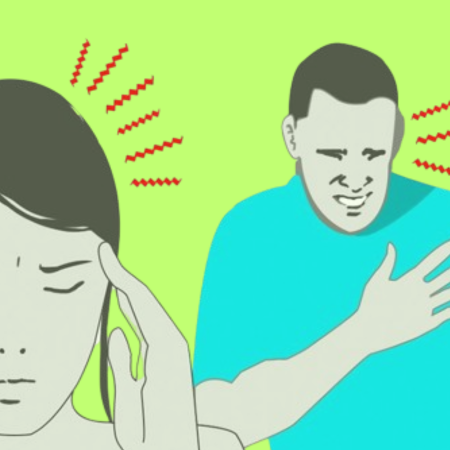12 Dangerous Bedtime Habits That You Should Always Avoid!
In our fast-paced and demanding lives, sleep often takes a backseat. However, establishing a good bedtime routine is essential for achieving quality sleep, which in turn affects our overall well-being. Unfortunately, many of us unknowingly engage in harmful bedtime habits that disrupt our sleep and leave us feeling tired and unproductive the next day. In this article, we’ll explore 12 dangerous bedtime habits that you should always avoid if you want to wake up feeling refreshed and energized.
Habit 1: Using electronic devices before bed
In today’s digital age, it has become increasingly common to spend time scrolling through our smartphones or watching TV right before bed. However, the blue light emitted by electronic devices can interfere with our sleep-wake cycle and suppress the production of melatonin, a hormone that regulates sleep. To mitigate the negative effects, consider reducing electronic device usage at least one hour before bed and using features like night mode or blue light filters.
Habit 2: Consuming caffeine late in the day
Many of us rely on caffeinated beverages like coffee or energy drinks to help us stay alert during the day, but consuming caffeine too close to bedtime can disrupt our sleep. Caffeine is a stimulant that can interfere with falling asleep and result in fragmented sleep patterns. It is recommended to avoid consuming caffeinated beverages at least six hours before bedtime. If you’re craving a warm drink in the evening, opt for herbal teas or decaffeinated alternatives.
Habit 3: Irregular sleep schedule
Maintaining a consistent sleep schedule is crucial for regulating our internal body clock and promoting healthy sleep. Going to bed and waking up at different times every day can confuse our body, leading to difficulties falling asleep and feeling rested. Aim to establish a regular sleep routine by going to bed and waking up at the same time every day, even on weekends. This consistency will help optimize your sleep quality.
Habit 4: Eating heavy meals before bed
Indulging in heavy, greasy, or spicy meals close to bedtime can wreak havoc on your sleep. The digestive system requires time to process food, and lying down immediately after a heavy meal can cause discomfort, indigestion, and even acid reflux. To promote better sleep, opt for light and nutritious evening meals that are easier to digest. Include foods rich in tryptophan, such as turkey, nuts, or seeds, which can promote the production of serotonin and melatonin, the sleep-regulating hormones.
Habit 5: Exercising too close to bedtime
Regular exercise is beneficial for overall health and sleep quality. However, exercising vigorously too close to bedtime can have a stimulating effect on the body, making it difficult to wind down and fall asleep. It is recommended to complete your exercise routine at least three hours before bed. If you prefer nighttime workouts, opt for calming activities like yoga or stretching that promote relaxation.
Habit 6: Napping late in the day
Napping can be a restorative practice, but when done too close to bedtime or for an extended duration, it can interfere with nighttime sleep. Avoid taking naps late in the day, especially if you struggle with falling asleep or have insomnia. If you feel the need for a nap, keep it short (around 20-30 minutes) and schedule it earlier in the afternoon.
Habit 7: Using a bright bedroom environment
A bright bedroom environment can hinder the production of melatonin, making it difficult to fall asleep and stay asleep. Create a sleep-friendly atmosphere by dimming the lights in your bedroom in the evening. Consider using blackout curtains or an eye mask to block out external light sources that can disrupt your sleep.
Habit 8: Consuming alcohol before bed
While alcohol may initially make you feel drowsy, it can negatively impact the quality of your sleep. Alcohol disrupts the sleep cycle, leading to more frequent awakenings and less restorative deep sleep. If you choose to drink alcohol, do so in moderation and allow ample time for your body to metabolize the alcohol before going to bed.
Habit 9: Ignoring stress management techniques
Stress and anxiety can significantly affect the quality of our sleep. Failing to address stress before bedtime can lead to racing thoughts, difficulty relaxing, and disrupted sleep. Incorporate stress management techniques into your evening routine, such as deep breathing exercises, meditation, journaling, or gentle stretching. These practices can help calm your mind and prepare it for a restful night’s sleep.
Habit 10: Having an uncomfortable sleep environment
An uncomfortable sleep environment can make it challenging to fall asleep and stay asleep throughout the night. Invest in a supportive mattress and pillow that suit your sleeping preferences and provide proper alignment for your body. Ensure that your bedroom temperature is cool and comfortable, and that your bedding and sleepwear are cozy and conducive to a good night’s sleep. Take the time to create a clutter-free and relaxing bedroom environment that promotes tranquility and rest.
Habit 11: Checking electronic devices during the night
The temptation to check our phones or other electronic devices during the night can disrupt our sleep patterns. The bright screens and engaging content can stimulate our minds and make it difficult to fall back asleep. To avoid this habit, establish a “no phone in bed” rule and keep your devices out of reach during the night. Consider using an alarm clock instead of relying on your phone for wake-up calls.
Habit 12: Not winding down before bed
Many of us have busy lives filled with activities and responsibilities. However, failing to allocate time to wind down before bed can prevent us from transitioning into a relaxed state conducive to sleep. Establish a calming bedtime routine that signals to your body and mind that it’s time to unwind. This could include activities such as reading a book, taking a warm bath, practicing gentle stretches, or listening to soothing music.
In conclusion, developing a healthy bedtime routine is crucial for achieving quality sleep and promoting overall well-being. By avoiding these 12 dangerous bedtime habits, you can improve the quantity and quality of your sleep, leading to increased energy, improved mood, and enhanced cognitive function. Remember to prioritize your sleep and make it a priority in your daily life.


